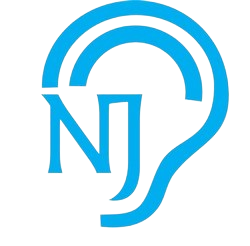Aural Rehabilitation - Speech
Aural Rehabilitation - Speech
Aural rehabilitation is a therapy program designed to help individuals with hearing loss improve their overall communication abilities. It goes beyond simply fitting someone with hearing aids and takes a comprehensive approach to address the challenges hearing loss presents for understanding and using spoken language. Here's how aural rehabilitation can benefit speech and language in individuals with hearing loss

What You'll Receive:
The evaluation process typically involves several appointments. It's crucial to understand that this is a significant decision, and we ensure you have all the information you need before proceeding.
Training: Aural rehabilitation therapists use various techniques to train individuals with hearing aids to listen more effectively in different listening environments (noisy restaurants, crowded rooms). This might involve practicing auditory discrimination (identifying subtle differences in sounds) and sound localization (identifying where sounds are coming from).
Strategies: Therapists teach strategies to optimize listening, such as using visual cues (facial expressions, body language), asking for clarification, and rephrasing to improve comprehension.
Technology: Aural rehabilitation can help individuals utilize their hearing aids effectively to maximize speech understanding. Therapists can guide adjustments to hearing aid settings based on individual needs and listening environments.
Communication Techniques: Therapists can teach strategies to improve speech clarity for conversation partners, such as speaking slowly and facing the listener directly.
Early Intervention: For children with hearing loss, early aural rehabilitation is crucial for language development. Therapists can provide strategies to stimulate language skills, vocabulary building, and exposure to spoken language despite hearing limitations.
Maximizing Residual Hearing: Therapists help children make the most of their remaining hearing to learn and develop language skills as effectively as possible.
Monitoring: Aural rehabilitation can help individuals with hearing loss monitor their own speech production. With reduced auditory feedback, individuals might not always be aware of volume, pitch, or clarity issues. Therapists can provide feedback and strategies to improve articulation and overall speech intelligibility.
Confidence Building: Effective communication fosters confidence. Aural rehabilitation empowers individuals with hearing loss to communicate clearly and participate actively in conversations, reducing frustration and social isolation.
Navjeevan: Your Partner in Hearing and Communication
If you or a loved one experiences hearing loss, aural rehabilitation can significantly improve your communication abilities. At Navjeevan, we offer comprehensive audiology services, including hearing evaluations, hearing aid fittings, and aural rehabilitation therapy. Our experienced therapists can help you develop strategies to manage your hearing loss and achieve optimal communication success. Contact us today to schedule a consultation and discuss how we can help you navigate the world of sound and communication effectively.

Overall Benefits
Clearer understanding and expression lead to more successful and enjoyable communication experiences.
Effective communication fosters self-esteem and allows individuals to participate more actively in social and professional settings.
With better communication abilities, individuals with hearing loss can lead more fulfilling and independent lives.
